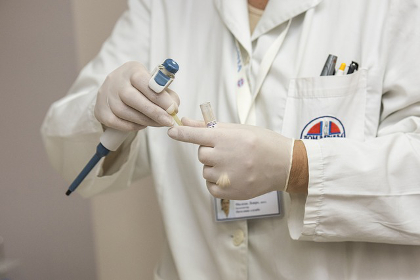
Why Hospital Beds Should Have Warning Signs
What the Centers for Disease Control and Prevention (CDC) is calling a "winnable battle" is currently claiming the lives of tens of thousands of Americans every year.
October 26, 2016 | Source: Mercola | by Dr. Joseph Mercola
What the Centers for Disease Control and Prevention (CDC) is calling a "winnable battle"1 is currently claiming the lives of tens of thousands of Americans every year.
According to the CDC, between 5 and 10 percent of people admitted to the hospital acquire an infection while an inpatient.2 In real numbers this accounts for 1.7 million infections and 99,000 deaths, incurring $20 billion in healthcare costs.
Many believe an antibiotic will cure all infections, but that is rapidly changing. In fact, according to infectious disease experts, the age of antibiotics is drawing to a close. Many bacteria are becoming drug-resistant, increasing the number of deaths from illness that, in the past, rapidly responded to medication.
This in combination with the reduction in development of new antibiotics, as the profit margin is poor, has led to the development of bacteria not just winning some battles, but poised to win the war. Experts have been warning about the upcoming diminished efficiency of antibiotics, and that time is now here.
Bacteria has found a way to resist most of the antibiotics produced, and we're now facing a time in history during which medical care may revert to the pre-antibiotic age, impacting surgical procedures, giving birth and even simple cuts and scrapes with significant casualties.
Last Hospital Bed Occupant May Predict Your Infection Rate
Whether planned or unplanned, hospital admissions should never be taken lightly as mentioned in a recent study published in the Journal of the American Medical Association (JAMA) Internal Medicine.
Researchers discovered that if the person who occupied your hospital bed before you received antibiotics, you have a greater potential for contracting clostridium difficile (C. diff.), a deadly virus that triggers massive diarrhea and may lead to death.3
The researchers studied more than 100,000 pairs of hospitalized individuals between 2010 and 2015.4 Doctors have known taking antibiotics can directly affect your risk of contracting C. diff., but now have evidence that your risk can be elevated simply by lying in the same bed as someone who received the antibiotics.
Patients had a 22 percent greater risk of developing a C. diff. infection when the previous occupant had received antibiotics. Kevin Brown, Ph.D., an assistant professor and researcher at the University of Toronto School of Public Health, told Reuters:5
"About half of patients in acute care facilities take antibiotics on any given day. That's a huge portion of patients that could be involved in spreading the infection."
According to Dr. Marc Siegel, professor of medicine at New York University Langone Medical Center:6
"This underscores the idea that hospitals are not being sanitized enough or they can't be sanitized enough. There is an increased need for increased sterilization procedures between patients."
